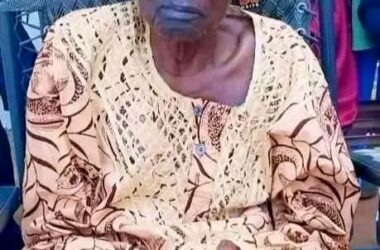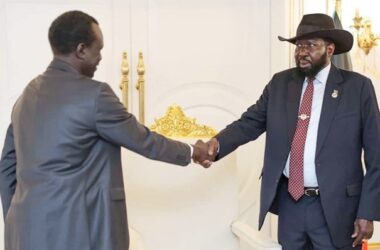By Bida Elly David
A group of young peace ambassadors in Malakal, the capital of Upper Nile State, have initiated a project aimed at reconciling conflicting communities in the region.
The peace group comprises more than 20 young members and from various communities across the state.
During a meeting, the chairperson of the organization, Yunis Simon Yau, stated that their primary objective is to reunite conflicting communities and put an end to revenge attacks.
“The reason why we were trained to be peace ambassadors was because we wanted to preach a peace message among youth in this state,” he said.
Mr. Yunis stated that youth have been subjected to the ongoing conflict due to the fact that they are influenced by others to act violently.
“In this state, we have five communities, and youth are the backbones of this country, especially in this state. That is why we have to preach the message of peace and love,” he stated.
The chairperson exclaimed that the formation of the organization was a voluntary initiative where they called for peace for the sake of saving their state.
“We do voluntary work, and we are now doing our best to bring youth together. So far, we have seen impacts in most of our dialogues with the youth and the community,” he expressed.
Furthermore, Mr. Yunis underlined that they encountered difficulties from some youth within hostile communities, but they managed to bring about change.
He also noted that the group also advocates for freedom of speech for youth, women, and elders as the election nears.
“We know that the country is heading for elections; youth have bigger roles when coming to elections; without them, no, voters, so we also talk to them about the importance of election participation,” he highlighted.
He added that the youth and elderly should have their voices heard and speak out their views on the stand of the country towards elections.
Tabitha Tut, a committed member of the youth peace body, emphasized that they have held a series of meetings with women concerning the cultural influence of revenge.
“During our discussions, we discussed the dangers of women’s participation in revenge, telling them to promote peace and embark on programs that will bring development to their families,” she said.
Tabitha emphasized that their teachings helped ladies who were initially traumatized due to the fact that they lost their loved ones during the conflict.
“As peace ambassadors, our duty is to bring change within our communities regardless of coming from different communities,” she added.
Moreover, Tabitha urged the government to exert much effort towards reconciling some of these conflicting communities alongside the efforts youth are exerting.
She underscored that a lot has to be done since most affected citizens are still afraid to return to their homes.
“At least we have seen changes in some women, as most of them can preach forgiveness, not revenge anymore, and youth are engaged in businesses; these changes are the result of the efforts of our group,” she added.
Meanwhile, Bolis George, another member of the youth group, urged the government for disarmament exercises to mitigate inter-communal violence.
“We are one people; carrying guns to kill a brother is a dangerous thing and will affect the progress of the community,” he said.
Mr. Bolis demonstrated pity for young people influenced by others to participate in killing or revenge.
“Our role as peace ambassadors is to ensure that armed youth desist from holding guns and start self-reliant jobs in order to improve their lives,” he echoed.




